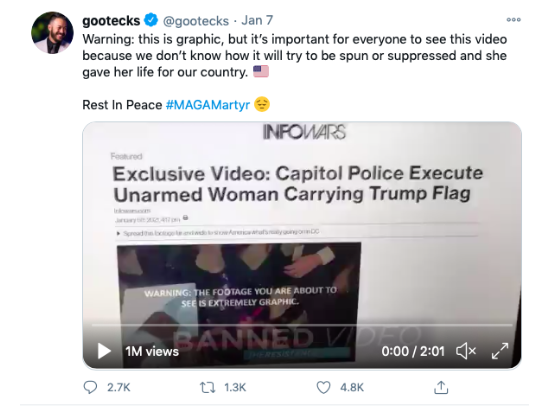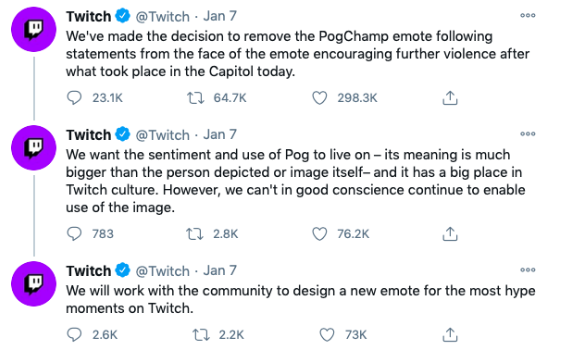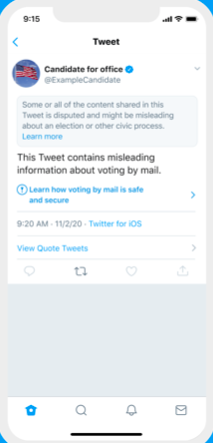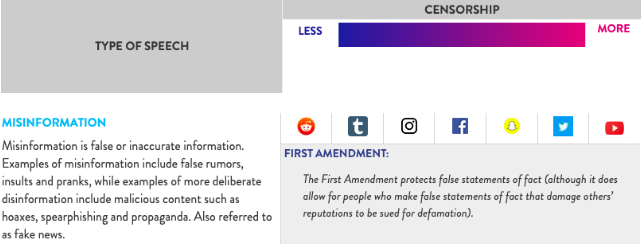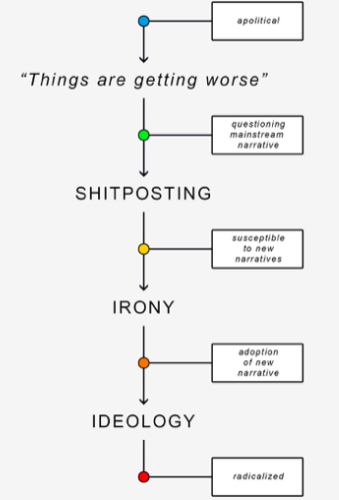
The rising responsibilities of Twitch as a social platform
On January 7th 2021, Twitch tweeted that the streaming platform will no longer support the well-known PogChamp emote. This meme - that is used when something surprisingly great happens - was born when Street Fighter streamer Ryan Guttierez (Gootecks) played a game called ‘Pogs’ and said ‘Pog Champions’. The face that he makes was from an older video in 2010 where he responded to the camera almost being knocked over. These two elements combined make the meme ‘pog’, ‘poggers’ or ‘pogchamp’ complete. Since Guttierez is literally the face of the meme, it matters to Twitch how he portrays himself on the internet. So when the streamer tweeted a response to the riots at the Capitol that was not aligned with Twitch’s stance on it, he faced repercussions for it.
Political discourse is talked about a lot on the internet and is a big part of our online culture. In our day and age, it matters more and more what presence companies have online, especially companies like Twitch that focus on the online world of streaming. When users - both passive and active - damage this presence, the platforms need to make changes to fix this image. This often leads to certain users and phrases being blocked. But where is the line with censorship in these situations? In this article, I will analyze Twitch’s and other social media platforms’ responsibility in our online culture. How is it that Twitch controls so much of what can and cannot be said on the platform? When does this turn into censorship? Is there a way for us to change or even control the power the platforms hold in their hands?
The Death of PogChamps
On the morning of the 6th of January, the Republican party held a ‘Save America’ rally where thousands of Trump supporters showed up to listen to the President speak. "You’ll have to show strength and you have to be strong" were the words Trump used to address the way the crowd and himself could take back the government in a future election (Jacobo, 2021). His supporters listened and marched to Capitol Hill where they broke through the barricades and destroyed the glass on the Capitol’s doors. The goal was to stop Congress from certifying that Joe Biden will be the 46th President of the United States. During the ‘storming of the Capitol’ four people died, one of them being a woman who got shot by a Capitol Police officer. This caused outrage among many Trump supporters.
Figure 1: Ryan Guttierez’s comment on the Capitol riots
Responding to this event, Ryan Guttierez took to Twitter and tweeted a video recording an INFOWARS news article called ‘Exclusive Video: Capitol Police Execute Unarmed Woman Carrying Trump Flag’ (see Figure 1). INFOWARS and its creator Alex Jones are widely known for right-wing content. Guttierez tweeting this video and his statement with it show his stance on the Capitol riots as supportive of Trump and his followers. As stated before, Guttierez can be seen as the mascot of the PogChamp emote, or even the mascot of Twitch for some. But his political views conflict with what Twitch stands for according to a tweet of theirs: a welcoming and diverse place for everyone to connect and create together. This is the reason why Twitch decided to cut connections to streamer Guttierez (see Figure 2).
Figure 2: Twitch announces that they will no longer have the PogChamp emote available to use on its platform
Twitch's use of language
Twitch is very much in control of what they want to put out on the platform and what they want to represent. There are many emotes to choose from that belong to specific streamers and communities. All of these specific ways of communication are monitored by moderators. Sometimes Twitch makes adjustments to what language is allowed. An example of this is when Twitch banned the terms ‘virgin’, ‘simp’, and ‘incel’ back in December 2020. The word simp means that someone does excessive things to get attention from another person, usually in a romantic way. It became very popular on the platform to type in live chats, mainly as an insult. The same goes for incel. The word - meaning involuntarily celibate - was sent whenever possible in live stream chats. Both of these insults caused Twitch to step up and do something since streamers complained and felt uncomfortable.
The ban does not mean that the words may never be used, only in certain, harmful contexts will a moderator remove the term (Kastrenakes, 2021). However, it is still somewhat a form of censorship on an online platform. It seems logical that Twitch can curate its own content but there is no clear line in these situations. Who can speak and who will they silence? Is it up to Twitch to be subjective around certain topics? Examples like ‘simp’ and ‘incel’ may seem insignificant but other situations where important voices could be silenced need to be paid attention to. Twitch may not be doing so now, but it certainly has the power to do so in the future.
The social responsibility of social platforms
Twitch moderating its content is part of a larger problem that we are facing in the 21st century. We are all witnessing the rise of responsibility and power of social media platforms. This rise can be seen in the way platforms like Facebook, Instagram and Twitter operate. During important events, many people rely on these social media apps to stay up to date and express their own opinions. The platforms cater to these needs with their affordances like stories, polls, and other interactive options. For example, during the US elections of 2020, many people followed Trump and Biden’s Twitter accounts. Voters watched the debates but also checked their tweets simultaneously.
Twitter used its influence to factcheck and later even silence a US President
Social media is more at the front of people’s minds unlike legacy media like tv and radio. A reason for this could be the accessibility of platforms like Twitter. The affordances I named earlier also play a part in this development. Newspapers do not have the same interactive element that Instagram has. Users can easily respond to celebrities and public figures. Interaction with these people makes them ‘more normal’ and relatable for the average person. Biden played into this role with his campaign. He posted his ‘story’ on his website and painted a picture that he is just like any other hard-working American. Trump used a different tactic and appealed to the Americans who feel like they are being mistreated and ignored. Twitter allows for both of these tactics to be played out on their platform. But there is a difference to be found. Trump’s way of tweeting is more emotional and ‘out there’ than Biden’s. Examples of this are Trump’s tweets on corona, specifically the ones about injecting disinfectant. So, Twitter decided to add a new feature that can indicate whether or not a statement in a Tweet has been disputed or not. Many of Trump’s tweets were indicated as things that were not 100% true. Twitter used its influence to fact-check and later even silence a US President (see Figure 3).
Figure 3: Twitter’s new feature that indicated if a statement is misleading/true or not
Censorship on social media and possible solutions
How is it possible that a company can silence such an important person as the American President? This is due to the fact that rules surrounding censorship online are very vague, maybe even nonexistent. Lata Nott, executive director of the First Amendment Center, stated the following in an article on the website of the Freedom Forum Institute: “The First Amendment protects individuals from government censorship. Social media platforms are private companies, and can censor what people post on their websites as they see fit.” The article also shows different categories of censorship where multiple platforms are measured (see Figure 4). Reddit censors the least and YouTube the most. Twitter mainly focuses on misinformation but censors less in other categories like hate and obscenity (Nott, 2021). Since these private companies can evade rules about censorship that governments face, they can take matters into their own hands and shape the platforms how they see fit. This can lead to negative developments like with Facebook in the 2016 elections. Facebook does not remove false news but tries to reduce its visibility (Nott, 2021). The company takes a neutral stance in politics but gives space for political ads on timelines. So, it seems that in some situations too little censorship also causes issues. But how can we find a solution for this?
Figure 4: Different social media platforms and their censorship on misinformation
What would Barthes think?
Even though writer and philosopher Roland Barthes wrote about case studies in the 1950s, his writings are still applicable in today’s world. His so called ‘myths’ showed elements of culture at the time and how they are not simply products or daily activities. They serve as signs, which communicate meaning. When Barthes wrote about detergent, he focused on the meaning of social class behind it (Barthes, 1993). When Barthes wrote about toys, he focused on gender roles and how adults ‘train’ children for their future life (Barthes, 1993).
The power of censorship on social platforms can be seen as a modern myth
Nowadays, signs like these can be found in how we communicate online and in the way we do so. The power of censorship on social platforms can be seen as a modern myth. It is not just a technical affordance online, but also a semiotic sign with more meaning. It means that the internet is becoming powerful, sometimes even more powerful than political figures. The myth symbolizes our polarized society and the many different opinions that can be found online. This polarisation is highly present in the younger generations, where Gen Z learned how to express their disdain online at an early age. This generation knows not to expect too much and ironically makes political statements that can turn into something more serious (Citarella, 2019; see Figure 5). It would seem that we as individuals do not have a lot of power to make changes to these social media platforms. But maybe it is too early to just accept the fate of the internet as a powerful technology in our lives. Maybe there are still chances to take and changes to make.
Figure 5: Citarella’s arc on how Gen Z’s political stances develop online
What is next for social platforms?
Donald Trump posted a statement on the White House website on May 28th, 2020 concerning prevention of online censorship. He mentions that the foundation of American democracy lies within the freedom of speech. Trump also expresses concerns about the rise of online platforms that can dictate what Americans can and cannot express. He follows with this statement: “This practice is fundamentally un-American and anti-democratic. When large, powerful social media companies censor opinions with which they disagree, they exercise a dangerous power. They cease functioning as passive bulletin boards, and ought to be viewed and treated as content creators".
This statement is highly applicable to streaming website Twitch, where moderators are closely in contact with users. Twitch can create new emotes and interact with users online and get instant feedback. They are directly connected with streamers, moderators, and viewers and are not just watching from the sidelines anymore. According to the statement by the President, platforms like Twitter, Facebook and Instagram are engaging in selective censorship that harms America’s national discourse (Trump, 2020). He later mentions Twitter’s function of flagging misinformation and how he himself is a victim. Before mentioning numerous policies, the 45th President states that America as a nation has to foster and protect diverse viewpoints and give every American a voice (Trump, 2020).
Online censorship
Donald Trump proposes a clear and good idea by stating that every American should have a voice. Sadly, it is not this easy. When it comes to having zero online censorship, the dangerous and negative elements outweigh the positive ones. Social media platforms do need to be more transparent in why they censor certain keywords, terms or users. With the rise of the digital age came a new kind of online public sphere. We all make use of our smartphones and almost cannot go without them. We value our privacy but the sensation of the online outweighs this concern.
Letting governments take total control over social media companies is not a good idea
Social platforms have interactive elements that are almost completely personal, and private online companies cannot ignore their influence on everyday users. Even though there need to be more rules on online censorship, letting governments take total control over these companies is not a good idea. Platforms like Twitter serve as a fourth power - like journalism - with affordances such as the indication if something is misinformation or not. This element is too important for democracy to be censored by a government that wants to protect itself. As it is right now, Twitch does not serve much of a threat when they censor certain terms or keywords. As long as the platform is transparent about it and communicates to its users truthfully, there is no reason to completely hand censorship control to a government. The Barthesian myth of online censorship may expand in the future but when this happens its participants - internet users - will gradually evolve with it.
References
Barthes, R. (1993). Mythologies. Random House.
Citarella, J. (2019, April). IRONY politics & GEN Z. NEW MODELS.
Jacobo, J. (2021). A visual timeline on how the attack on Capitol Hill unfolded.
Kastrenakes, J. (2021, December 16). Twitch bans ‘simp’. The Verge.
Nott, L. (2021). Free Expression on Social Media. Freedom Forum Institute.
